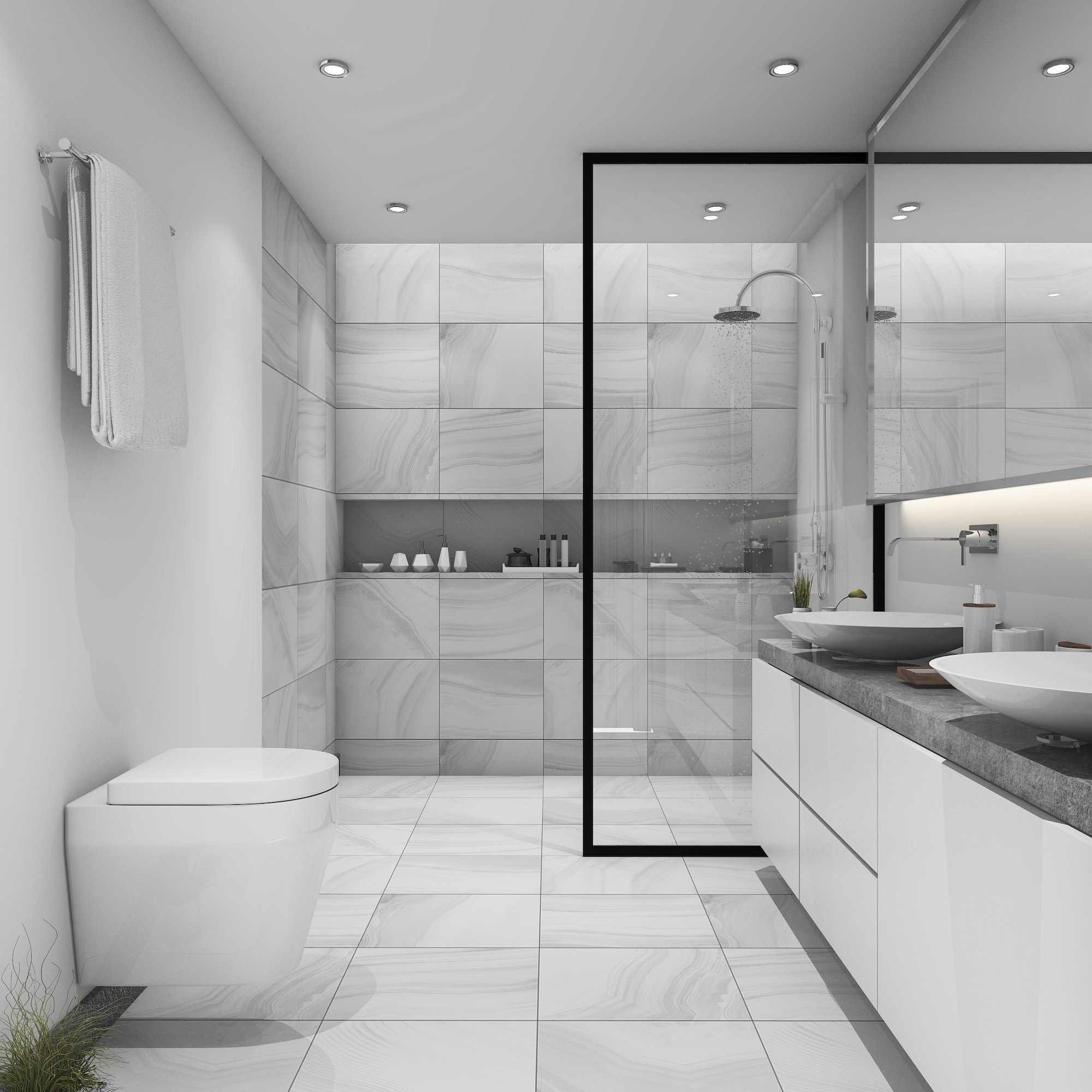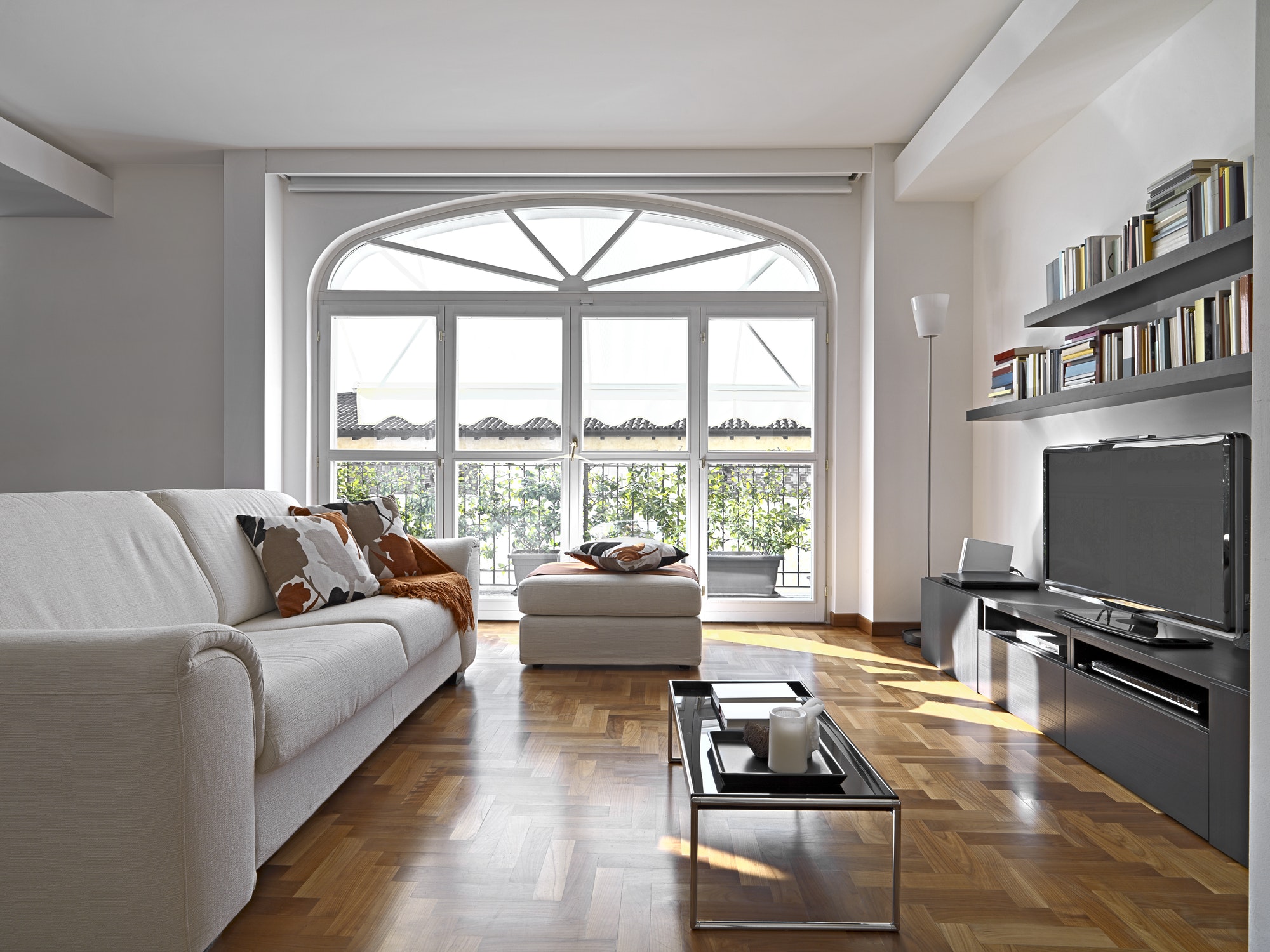Tired of high-pressure days that leave your mind and body drained? Who says you need to book an appointment at a luxury spa for ultimate relaxation? With just a little effort, you can design your own personal spa sanctuary right in the comfort of your home.
In this article, we’ll share our expert advice for incorporating spa-inspired elements that will reduce your stress and boost your well-being.
Create a Dedicated Wellness Space
Designating part of your home specifically for physical and mental well-being can help make these activities a regular part of your daily routine. This approach is recommended by Sarah Barnard, an interior designer specializing in restorative spaces.
Barnard told U.S. News that even a simple, quiet corner with comfortable cushions or additional seating can provide a respite from stress when needed. Seeing a purposeful space reminds you to prioritize your health.
Barnard explains that a room designed for movement takes exercise to the next level. Being able to easily practice yoga, stretching, or other activities in the same spot provides consistency that gym memberships may lack.
She also notes that devoting space visually shows wellness is important. Incorporating areas for various forms of motion, from low-impact to more intense exercise, supports connecting with your body, according to the expert. A dedicated wellness room or corner creates an environment that uplifts both mind and body, Barnard says.
Consider Adding a Sauna Room
If you have the budget, installing a full sauna room in your home provides a soothing escape any time of the year. A dedicated sauna room offers both a relaxing retreat and a range of health benefits, making it an excellent addition to any home.
For a more affordable option, an infrared sauna is recommended. These use less energy than traditional wooden saunas but still deliver relaxation benefits. Infrared saunas also tend to be compact enough to fit in a corner yet spacious enough for one or two people.
Careful thought should go into the bench layout when designing a sauna space. According to ThermaSol, the seating configuration is essential for comfort and the sauna experience. Options include tiered benches for a traditional feel or ergonomic designs for enhanced relaxation. The layout can be customized to suit individual needs and preferences.
Whether wood-heating or infrared technology, a well-planned bench arrangement helps maximize usability and user comfort in the sauna room.
Invest in a Steam Shower
A steam shower combines the functionality of a traditional shower with the luxurious experience of a steam room. It uses a steam generator device that boils water and releases steam through pipes and a steam head mounted in the shower stall.
Within minutes, the entire space transforms into a warm mist that envelops the body, mimicking a spa-like steam room experience at home. This blurs the line between daily routines and indulgent escapes right in your bathroom.
Steam showers can be installed using a prefabricated kit or custom design. Kits are simpler and cheaper but offer less customization, while custom designs give more control over features and aesthetics.
Whether using a kit or a custom design, the generator needs to be located within about 25 feet of the stall. This makes a nearby closet a convenient option. A tiling contractor and shower door installer then build a steam-proof enclosure. Next, a plumber connects all pipes, and an electrician handles wiring and controls for the 220-volt generator.
For a DIY installation, carefully consider generator sizing based on stall dimensions and materials. This Old House says that a typical 4x5x8 foot tile-lined stall requires at least a 7-kilowatt unit.
Ventilation and waterproofing are also important to prevent moisture issues. An exhaust fan helps remove steam while waterproofing interior walls before tiling protects structural elements from dampness. With the right installation and safeguards, a steam shower brings a spa-like experience home.
Aromatherapy in Bathroom Design
For centuries, aromatherapy has been used to promote relaxation and improve mood. Popular spa scents like eucalyptus and lavender make great choices. Eucalyptus refreshes and invigorates, while lavender induces a calming sense of serenity.
Consider incorporating essential oil diffusers or candles into your bathroom’s design. Diffusers spread therapeutic aromas through space, while candles provide both soft lighting and fragrant notes.
When choosing a diffuser, consider options from reputable brands. ”Now” is a health and wellness company known for supplements. Their ultrasonic diffusers, like the bamboo model, use heat-free technology for a gentle mist. Intermittent use provides aromatherapy for up to 14 hours, while continuous misting lasts 7 hours. LED light colors and a range of 400 square feet make it a versatile choice.
Another quality option suggested by CNET is the PureMist from aromatherapy brand SpaRoom. Found in major retailers, it offers strong oil diffusion at a low price—an important factor as more affordable models sometimes mist weakly.
Easy to use and effective, the PureMist beautifully spreads calming scents through any room, helping design a spa-like refuge in your own home. Quality diffusers make aromatic integration simple and enjoyable.
FAQs
1. How large should a spa room be?
A: A spa room typically needs ample space for an ideal setup. Successful spas generally start with a minimum of 1,600 square feet. However, 2,500 square feet or more is often preferred for a comfortable and well-equipped environment.
2. How can I create a spa-like experience at home?
A: Set a relaxing mood by dimming lights and lighting scented candles. Play soft, soothing music in the background. Prepare a warm bath with bubbles or set up a massage area using essential oils. Plush towels, robes and other comforts can enhance the experience.
3. How can I give my partner a spa day at home?
A: Run a warm bath for two if you have a bathtub. Add spa essentials like bubbles, aromatherapy oils or Epsom salts to soften the water. Then you can both soak and unwind together in the soothing bath. Massages, facial masks or relaxation activities can further pamper your partner. The effort shows you care about their comfort and well-being.
Transforming even a small space in your home into an oasis of relaxation and well-being does not need to be expensive or difficult. With some simple adjustments like an essential oil diffuser, comfortable seating, and the integration of aromatherapy, you can design your own personal spa sanctuary.
Making stress-reducing activities easily accessible is key to supporting both your mental and physical health every day. By prioritizing self-care in a dedicated space, you gift yourself the restorative benefits of a luxury spa right at home.
Discover more from Futurist Architecture
Subscribe to get the latest posts sent to your email.



